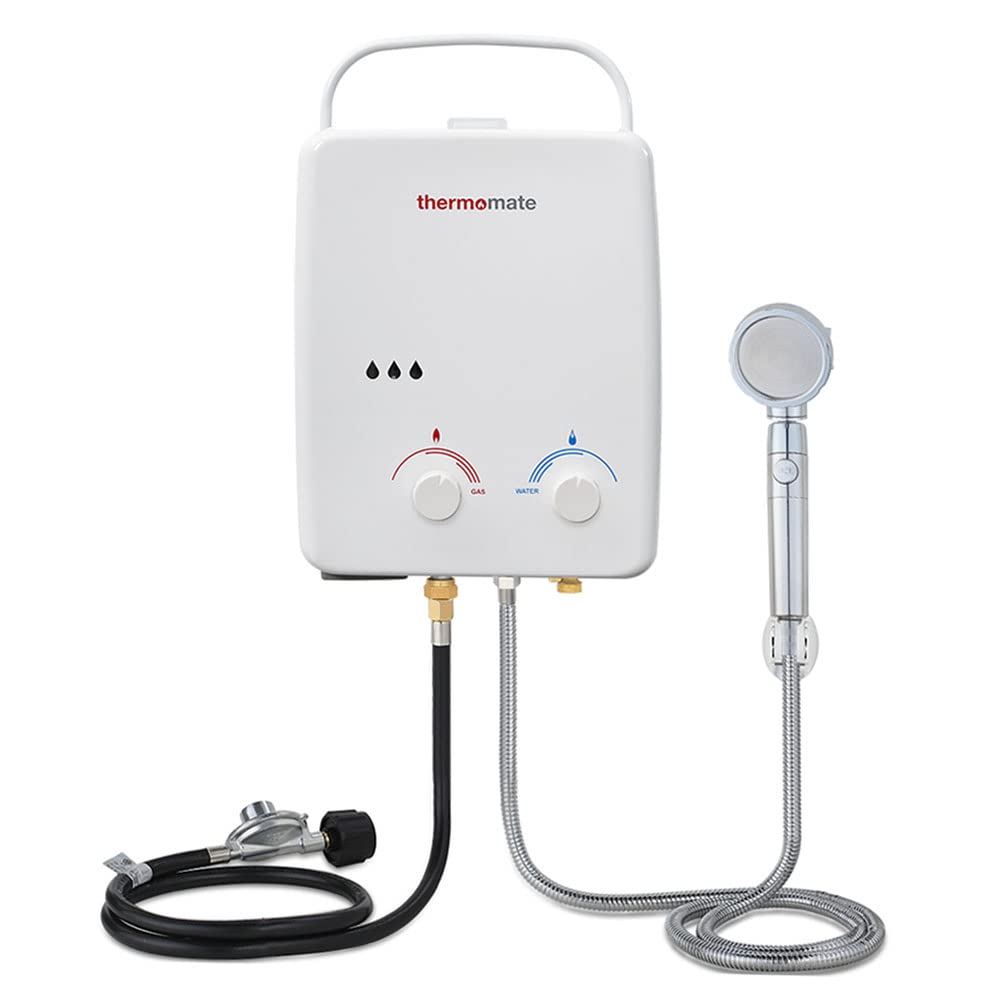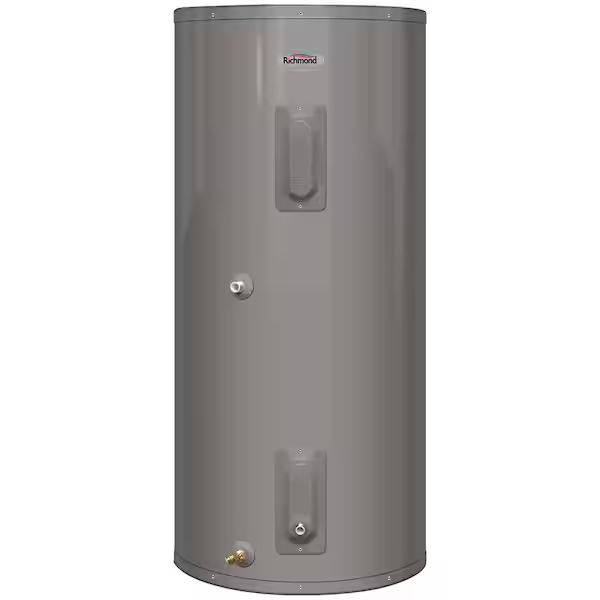Water heaters play a crucial role in our daily lives, providing the hot water we need for bathing, cooking, cleaning, and various household tasks. Is gas or electric water heater better? When it comes to choosing a water heater, the two most common options are gas and electric models. Each type has its own benefits and drawbacks, leading to a significant debate among homeowners and builders. This article will explore the key differences between gas and electric water heater, helping you make an informed decision for your own needs.
Understanding the Basics
How Gas Water Heaters Work
Gas water heaters use natural gas or propane as their fuel source. They operate by igniting gas to produce a flame that heats the water in the tank. This process typically involves a burner located at the bottom of the tank, generating heat directly below the water. The temperature of the water rises as it absorbs the heat from the burner, providing hot water on demand.
Many gas water heaters feature a thermostat that allows users to control the water temperature easily. When the temperature drops below a certain level, the thermostat signals the burner to ignite, heating the water back to the desired temperature.
How Electric Water Heaters Work
Electric water heaters use electricity to warm the water. Instead of a burner, these models have electric heating elements submerged in the water tank. When the thermostat indicates that the water temperature has dropped, it activates the heating elements to warm the water.
Electric water heaters typically come in two types: tank and tankless. Tank models store a certain amount of hot water, while tankless versions heat the water on demand, providing an endless supply of hot water without the need for a storage tank.
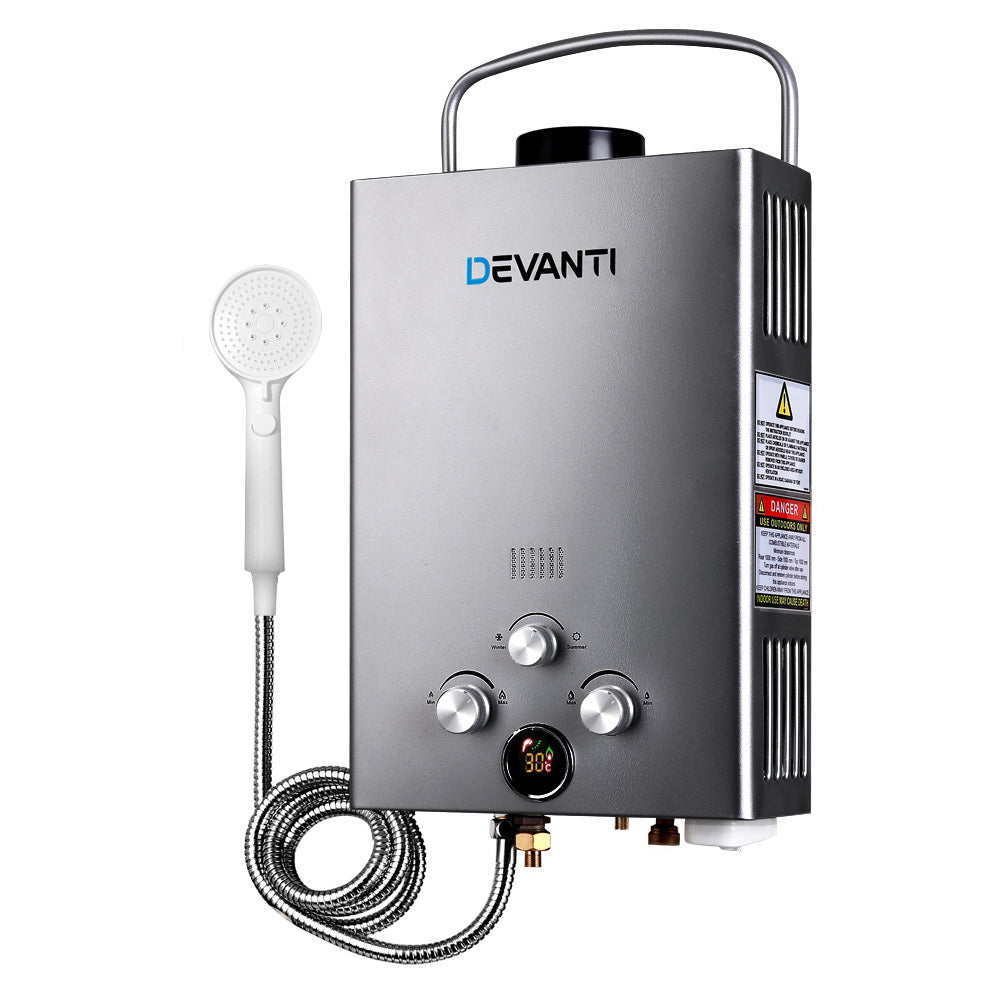
Efficiency and Operating Costs
Gas Water Heaters
Gas water heaters usually have lower operating costs compared to electric models because natural gas tends to be cheaper than electricity in many areas. They heat water more quickly and generally have higher recovery rates, meaning they can provide hot water faster when multiple outlets are in use. This efficiency makes them particularly appealing for households with higher hot water demands.
However, gas water heaters require proper ventilation to expel harmful combustion gases. This need can complicate installation and increase the associated costs. Additionally, regional gas prices can fluctuate, impacting the long-term operating costs of gas water heaters.
Electric Water Heaters
Electric water heaters often have a higher energy efficiency rating than gas models. They do not require venting, making them easier to install in various locations, including smaller spaces. Though electric models typically have slower recovery rates compared to gas heaters, they can still efficiently meet the hot water needs of most households.
While the upfront installation costs may be lower, electric water heaters can incur higher monthly utility bills, depending on electricity rates in your area. However, some homeowners may choose to use renewable energy sources, such as solar power, to minimize electricity costs.
Installation and Maintenance
Gas Water Heater Installation Considerations
Installing a gas water heater usually involves more complexity than an electric model. Homeowners need to ensure that a natural gas line is available and that proper ventilation systems are in place. The installation may require a professional plumber or technician to adhere to local building codes and safety regulations.
Regular maintenance of gas water heaters is essential for safe operation. Homeowners should inspect the gas line and burner assembly periodically for leaks or corrosion. Flushing the tank at least once a year to remove sediment buildup is also recommended to improve efficiency and prolong the lifespan of the unit.
Electric Water Heater Installation Considerations
Electric water heaters typically have more straightforward installation processes, especially for existing homes where electrical lines already exist. A licensed electrician can handle the installation, and many homeowners find it to be a manageable DIY project.
Electric water heaters also require less ongoing maintenance. While it’s still beneficial to check for signs of wear or leaks, there is no need to inspect gas lines or install ventilation systems. Periodically flushing the tank will help maintain efficiency, but overall, electric models can be more convenient for homeowners seeking low-maintenance solutions.
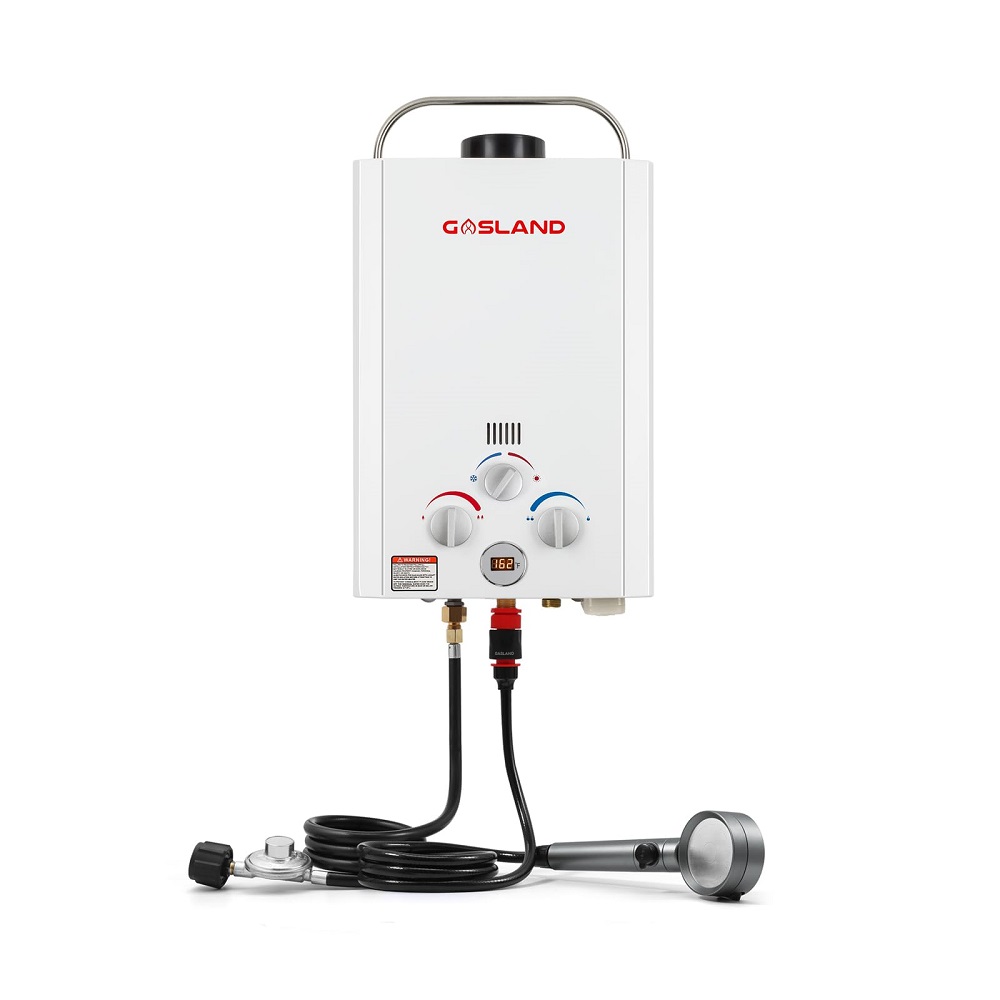
Performance and Recovery Rates
Gas Water Heaters Performance
Gas water heaters generally outperform electric models when it comes to delivering hot water quickly. They heat water faster, making them ideal for households with high hot water usage. For families who rely on taking multiple showers or running several hot water appliances simultaneously, a gas unit may be the more practical option.
The recovery rate of a gas water heater averages around 40 to 50 gallons per hour, depending on the tank size and burner efficiency. This rate allows for rapid replenishment, particularly helpful during peak usage times.
Electric Water Heaters Performance
While electric water heaters may lag in initial recovery rates, modern tankless electric water heaters offer a continuous supply of hot water. This type of system heats water on demand rather than storing it, which can effectively eliminate wait times for hot water.
However, traditional electric tanks generally take longer to replenish. Recovery rates typically range from 30 to 60 gallons per hour for electric units. While they may suffice for smaller households, larger families might need to be more strategic in their hot water usage to avoid running out.
Environmental Considerations
Gas Water Heaters and Emissions
Gas water heaters produce carbon dioxide and, in some instances, carbon monoxide during combustion. Proper ventilation is essential to ensure that these gases dissipate safely. While natural gas is cleaner than some other fossil fuels, using it still contributes to greenhouse gas emissions.
Homeowners interested in minimizing their environmental impact may want to consider the efficiency of their local gas supply. Renewable natural gas (biogas) is another option that reduces overall emissions but may not be available in all regions.
Electric Water Heaters and Sustainability
Electric water heaters offer a pathway for integrating renewable energy into the home. If a homeowner utilizes solar panels or wind energy, their electric water heater can effectively run on clean, renewable energy. This transition reduces reliance on fossil fuels and minimizes carbon footprints.
However, it’s important to consider how electricity is generated in a specific area, as reliance on coal or other non-renewable sources can offset these benefits. Investing in energy-efficient electric models also contributes to sustainability, as they consume less energy while providing effective hot water.
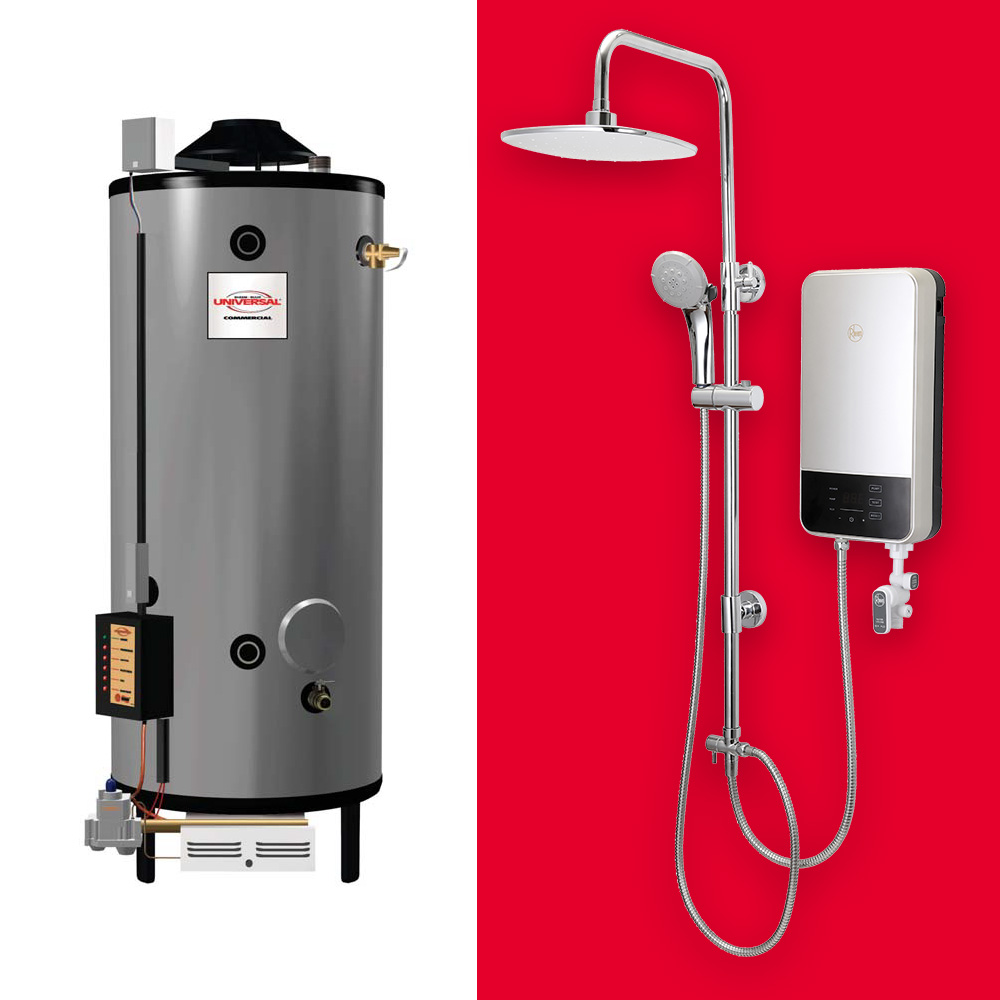
Cost Considerations and Returns on Investment
Initial Costs
Initial costs play a crucial role in the decision-making process. Typically, electric water heaters tend to have lower purchase and installation costs. Homeowners can find a wide range of electric models that fit within different budgets, making them an accessible choice.
On the other hand, gas water heaters usually have higher upfront costs due to the complexity of installation and the necessity of venting. However, they may prove more cost-effective in the long run for households with high hot water needs, given their lower operating costs.
Long-Term Expenses
The long-term operating expenses of both systems should be taken into consideration. Although gas water heaters typically lower monthly utility bills, variations in gas prices can impact overall costs. Electric water heaters may start with a lower financial barrier but can lead to higher electricity bills over time.
When assessing the financial aspects, homeowners should also consider potential energy efficiency rebates or tax incentives available for upgrading to more efficient models or utilizing renewable energy sources. These factors can significantly influence overall costs and returns on investment.
Making the Right Choice for Your Home
Assessing Your Hot Water Needs
Ultimately, the choice between gas and electric water heaters depends on your household’s specific needs. Evaluate how much hot water your family uses daily. High-demand households may benefit from the quick recovery times of gas water heaters. Meanwhile, smaller families or those with more modest hot water needs might find electric models sufficient.
Considering Resources and Regulations
Additionally, consider your existing resources and local regulations. If natural gas is readily available, a gas water heater may be a practical choice. The lack of gas lines or local regulations promoting electric systems can make electric water heaters more appealing.
Long-Term Vision
Think about your long-term goals when it comes to home improvements and energy efficiency. If you aim to reduce your carbon footprint, investing in an electric water heater powered by renewable energy might align better with your sustainability objectives.
Whatever direction you choose, understanding the nuances of both gas and electric water heaters allows you to make a well-informed decision that suits your lifestyle and home.
Conclusion
The debate over whether gas or electric water heaters are better hinges on numerous factors, from efficiency and performance to long-term costs and environmental impacts. Both systems have their advantages and disadvantages, depending significantly on personal circumstances, hot water needs, and budget constraints. By thoroughly exploring the essential aspects of both types of water heaters, homeowners can arrive at a choice that meets their specific requirements while aligning with their values. Embracing the right water heating solution will lead to benefits that enhance comfort, convenience, and sustainability in your home for years to come.
